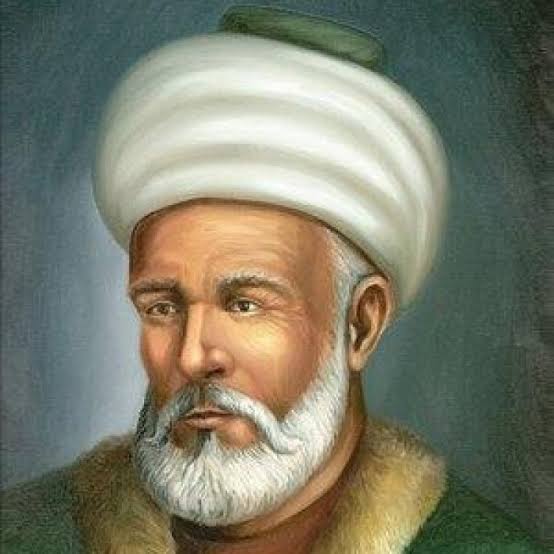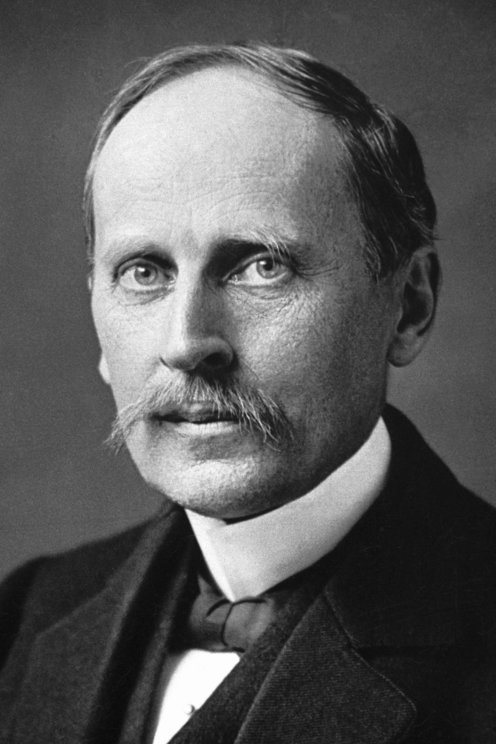The best physicist of all time was Isaac Newton
If someone asked you to name the two best scientists of all time, what would you do? Surely Albert Einstein's name will be mentioned first, then Isaac Newton. But if you ask me, I will say Newton's name first. No matter what you say, without Newton, science would not be where it is today. Without Newton, Einstein could not have discovered his breakthrough. Without Newton, mankind would not be able to imagine rocketing in space today. Yes, without Newton there would be so much more that is hard to imagine in today's world. Until then the boundaries of science were small. He has widened it. He has radically changed physics. And it is because of his contribution that we find the presence of physics in every aspect of life today.
Childhood life and education
Isaac Newton Jr. was born on January 4, 1843, in Ulsthorpe, a small village in Lincolnshire, England. His father, also named Isaac Newton, died before Newton Jr. was born. Although Newton's father did not know how to read or write, he was prosperous. Who knew that the boy born in the house of an ignorant farmer father would one day change the world!
When Newton was three years old, his mother, Hannah Esco, married a priest. But Newton could not accept him as a father. So he moved away from his parents to his grandmother Marjorie Esco. Surprisingly, his anger towards his honest father and mother increased with age. Once as a teenager, he threatened to burn down their house!
At the age of 12, he was admitted to King's School. It was in that school that he studied classical science. Mathematical science was not very much there, yet Newton was the best student in the class. But when he was 18, his mother stopped him from going to school so that Newton could be a farmer like his father. But fortunately, his great reluctance in farming forced his mother to re-admit him to school. It's scary to think if Newton's agriculture was good, what would science be like today?
Higher education
In 181 Newton began studying law at Trinity College, Cambridge. At the same time he started earning money by working as a personal servant of rich students. Interestingly, the scientist who made so much progress in physics did not have anything different to say about physics when he received higher education!
By the time he entered his third year, he had become quite proficient in mathematics and natural philosophy. Although Aristotle and Plato initially felt somewhat attracted to ancient Greek theories, they soon found that they were wrong. As a result, college education became insignificant to him, and he began reading books by modern scientists of his day, such as Robert Boyle, Galileo Galilei, and Johann Kepler. Not to mention a famous quote from him,
Many questions came to his mind while working as a personal servant. He used to write those questions in his own note. There were also questions about gravity, the nature of light, the color of light, and so on. After spending three years at Cambridge, he received a four-year scholarship.
In 175 Newton made his first major mathematical discovery. He discovered the universal equation of binomial. His BA degree also ended that year. This time he paid full attention to his thoughts. But obstacles came. The plague spread as the worst epidemic in the history of England. As a result, the college was closed and Newton moved home.
Fellow of Mathematics and Lucasian Professor Newton
Newton returned to Cambridge at the age of 24 and was elected a Fellow that year. The following year he was awarded an MA degree by Trinity College. In 189, Isaac Barrow, then Lucasian professor of mathematics at Trinity College, resigned, and Newton became a Lucasian professor at the tender age of 26.
Before we get to the story behind some of the most famous discoveries in Isaac Newton's life, let's take a brief look at his contributions to physics.
Discovery of the universal formula for the islet.
Analysis of sunlight through prisms and discovery of the division of seven lights.
The invention of the reflection telescope.
The mathematical form of change was discovered by Calculus without which it would not have been possible to understand the nature of matter as small as an electron or as large as a galaxy.
Principia Mathematica wrote one of the greatest books in the history of science.
The discovery of gravity and the universal gravitational constant.
Discovering three laws of motion.
Discusses the particle motion of an object due to gravity such as round, elliptical or elliptical which also discusses the motion of planets and stars in space.
Evidence of tides due to gravity.
He predicted that the earth would not be completely round, but would be slightly polarized.
Calculus is the mathematics of change. Newton was the first to fully develop the calculus. Modern physics and physical chemistry cannot be imagined without calculus. Moreover, subjects like biology and economics are in many cases dependent on calculus. Newton said in his book that he was inspired by the work of Pierre de Fermat. The format illustrated how calculus can be used, and Newton implemented it. However, at the same time as Newton's discovery, Leibniz published his work on calculus. Nowadays, in many cases, Newton as well as Leibniz are equally remembered for inventing calculus.
Gravity, Newton and an apple
Many say that Newton's story about the apple is a mere story. But there is no reason to think so. Because Newton himself said that as soon as he saw an apple falling from a tree, he suddenly started thinking about gravity.
Sitting in the apple orchard next to his house, Newton often thought about various things. One day when an apple fell in front of him, he began to wonder why the apple was falling perpendicular to the earth. Why not go upstairs or around? It is from this thought that the planets of the solar system revolve around the sun and the moon revolves around the earth. He can realize that there is an invisible force that attracts these objects to himself. Newton named it gravity. And gravity is what keeps the earth from attracting the moon or the apples falling in its garden or all other objects. Created with the immortal equation of measuring his gravitational force. Take a look at the equation.
The simple Bengali translation of this mathematical equation is as follows: "Every particle in the universe attracts each other and the value of this attraction ball is proportional to the product of the mass of the two particles, disproportionate to the square of the distance and this force acts along the centers of the two particles."
Newton's law of motion
The reason why classical mechanics is called Newtonian mechanics can be understood after reading Newton's law of motion three. His formulas are as alive today as they were then. Let's take a look at the formulas-
Formula 1: If force is not applied, the stationary object will remain stationary forever and the moving object will continue to move in a straight line forever.
2nd law: The change of momentum of an object by force is proportional to the force applied to it and the change of momentum of the object is also in the direction where the force acts.
Formula 3: Every action has an equal and opposite reaction.
In today's world, people are constantly sending rockets out of the world based on its speed. Yes, rockets are running today based on the formula that Newton discovered 300 years ago. But Newton's formula also has limitations. This formula will not apply to any object moving at a speed close to light. Then Einstein's law of relativity will apply. Again, this formula does not apply to very small objects, whether their mass is as small as electrons or protons.
Last word
In 1896, Newton became Warden of the royal mint. In 1800 he was appointed 'master' of the mint. That same year he left Cambridge for good and moved to London. Simply put, it ended his scientific career. In 1803 he was elected President of the Royal Society. Two years later, in 1805, he was knighted, and from Isaac Newton to Sir Isaac Newton.
Newton died on 31 March 1827 at the age of 84. His identity as the best scientist in the world cannot be overstated. He is above all these adjectives. I will end with the statement made by another great scientist of the time about him.

.png)





0 Comments